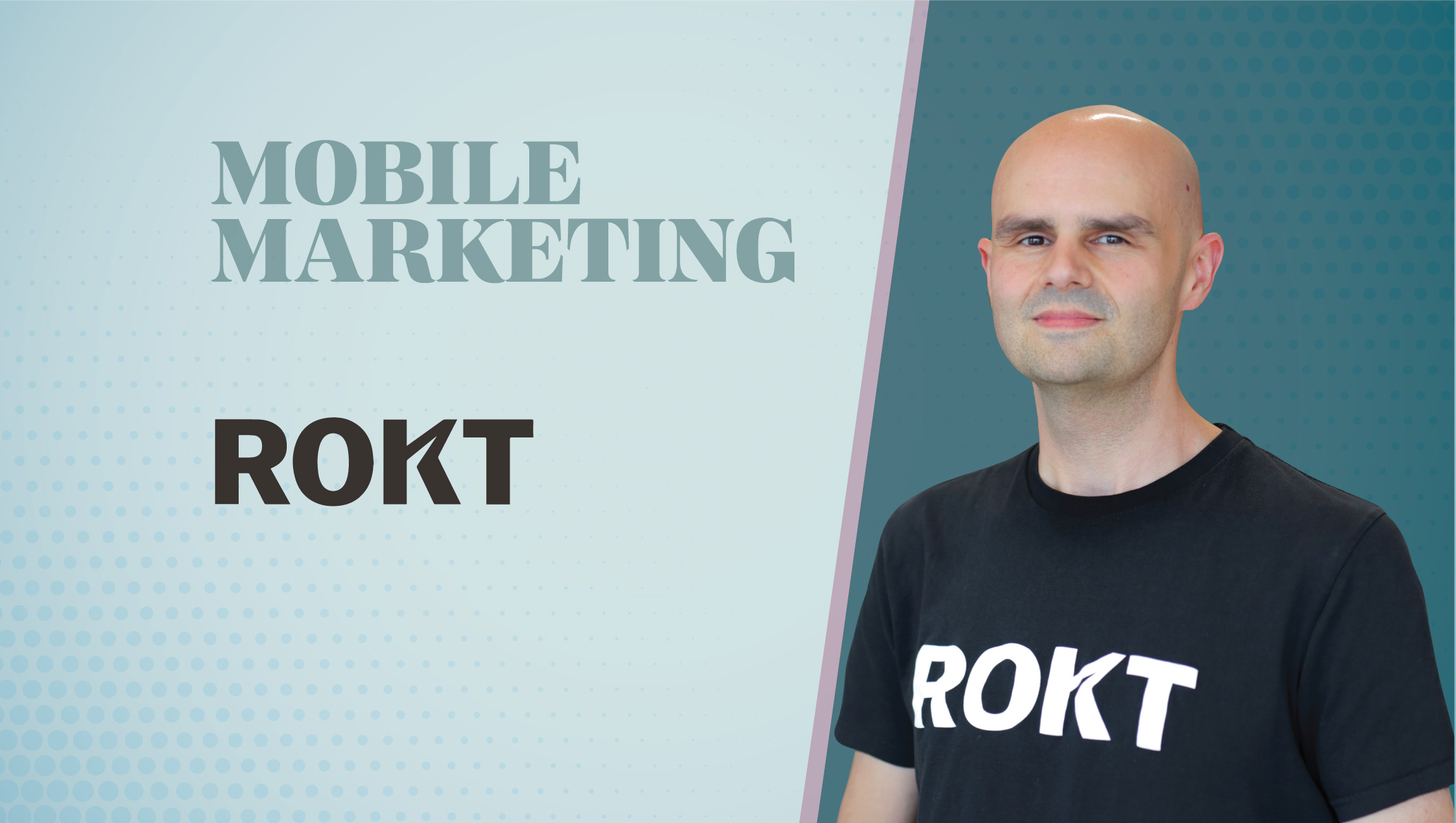Tell us about your role and journey into Marketing Technology. What inspired you to start Ubimo?
We started Ubimo in 2013, at a time when people were trying to replicate the desktop-based digital ecosystem to mobile. They were looking at low context online behavior in-app to try and estimate things like the propensity of an audience to visit a brick-and-mortar location. We, my co-founders and I, thought that was insane.
Why were people estimating and guessing when they could actually analyze and measure mobile signals?
Everyone was now walking around with mobile phones in the physical world, and that can give you exact and precise data on how panels were moving. We saw a need in the market for a technology that can take the signals emerging from the mobile ecosystem and turn that data into actionable insights for companies to use as business intelligence. Making that connection between the digital and the physical worlds is what fascinated and motivated us.
How does Ubimo fit into a modern marketing technology stack?
Understanding your audience has always been at the core of successful marketing. Ubimo is a SaaS location intelligence company that empowers businesses to understand and act on real-world behaviors, bridging the knowledge gap between the digital and the physical worlds. Our platform enables businesses to embed strategic insights into decision-making, improving performance across Shopper Marketing, Programmatic, and Out-of-Home.
What’s the state of Location Data Intelligence? How do customers leverage your Location Intelligence technology for cross-channel marketing and advertising campaigns?
Raw location data has become a commodity. So the questions of “How much scale?” or “What is your reach?” have become “What can you do with this data?” and “How can you solve a specific question for my business?”
For Out-of-Home (OOH) companies, we provide the ability to perform audience-based targeting, which they are familiar with from the digital world, for the real world. Instead of selecting a billboard, or any other OOH property, based on an estimate of eyeballs per week, media owners can now define what audience their clients are trying to reach and identify which properties index higher for that specific audience. Then, we tie that to behavior; we are able to measure the effect of ads on foot traffic and even digitally performed actions.
Similarly, in retail and shopper marketing, you are able to better understand stores based on the audiences they attract, and better understand the customer journey by comparing different regions and trends, and then leverage these new insights toward better business applications.
Other than Location Data, what are the core technologies driving your product roadmap?
We are a technology provider and focus on creating self-service tools that empower our customers. Our technology converts location data into useful and actionable location intelligence. Data by itself, in my opinion, is not valuable. It becomes valuable when you can use it to drive your business, and for that we created a platform that also serves as the connecting tissue between first- and third-party data. When a client can connect their data to movement or location data, they can expand their understanding of their customers and leverage this new view.
What is the current state of Behavioral Analysis? How much of this state has evolved with maturity of Big Data and Location Intelligence management?
Behavioral analysis has evolved on two different tracks.
Pushed by advancements in big data, both online behavior and offline behavior tools have made great progress. But with the maturity of location intelligence we can now, for the first time, really connect digital online behavior with physical offline behavior at scale, and provide a holistic view into the consumer journey.
How do you identify the biggest advantages and challenges in Digital Commerce? What role does Ubimo play in overcoming these challenges?
At Ubimo, we believe in building collaborative relationships, internally and externally. Therefore we are always working with our partners and clients to understand their actual business challenges and constantly push the boundaries of which challenges we can solve through technology. Our goal is to create tools and products that will empower our customers to deal with these challenges autonomously. We embrace this iterative process of evaluating market feedback, identifying the areas where location intelligence can have the most impact, and working to build robust tools to serve those areas.
Tell us about your go-to strategies to support rapid growth, lessons learned through periods of massive shift and transition.
To really scale as a startup, you cannot rely on a managed-service offering where you execute the work for your clients, even if this could lead to great short-term success. This is the reason our go-to strategy has always been focused on self-service enterprise tools and business models. Once a client embeds your technology and uses it to solve day-to-day business challenges, you are able to build long lasting relationships that scale and provide long term value.
Which Marketing and Sales Automation tools and technologies do you currently use?
We use HubSpot for marketing, sales automation and CMS, and we use Guru for knowledge management and sharing.
What are your predictions on the most impactful disruptions in AI and Data Science technology for 2019-2020?
In the last couple of years the infrastructure challenge has mostly been solved, with startups now having access to unprecedented computing power and AI tools in the cloud. This enables robust AI and data science developments, so the real disruption in the next few years will come from embedding this data science into all areas of operations. Data science will become an integral asset as opposed to a separate department. As I mentioned earlier, location data has become a commodity, but its real power lies in actionability, in its speed and time to impact. In regards to AI in particular, there’s a huge gap between superstar companies in that domain and the rest of the sector. Infrastructure has largely been solved, but there remains a tremendous need for tools and education. There’s been an effort underway to illuminate and popularize machine learning that I believe will continue during the coming years.
What startups in the technology industry are you watching keenly right now?
There are several developments in the Digital Out-of-Home ecosystem which, to me, are fascinating to watch. The transformation of this traditional business into a data-driven, digital-first ecosystem is happening quicker that I have seen in other ecosystems in the past. VIOOH is one of the companies I am watching closely, as a startup that branched out of JCDecaux, one of the largest OOH players. They are establishing a new era of independent, open, connected platforms that are really accelerating innovation and I am excited to see how they, and similar companies, accelerate OOH growth.
How do you prepare for an AI-centric world as a Business Leader?
Artificial intelligence is only as good as the data science it is built upon. Therefore, we put data science at the core of our product and offering. We work with a planning framework that enables both bottom-up innovation to impact strategy, and top-down strategic direction to be translated into AI innovation.
How do you inspire your people to work with technology?
By constantly showing them the real-world results we create and the changes we are bringing to the ecosystem.
One word that best describes how you work.
Commitment.
What apps/software/tools can’t you live without?
Spreadsheets!
What’s your smartest work related shortcut or productivity hack?
I work with an inbox-zero strategy to stay on top of everything that is important and prioritize correctly.
What are you currently reading? (What do you read, and how do you consume information?)
I am reading “21 Lessons for the 21st Century” by Yuval Noah Harari on my tablet.
What’s the best advice you’ve ever received?
Surround yourself with smart people and give them the tools they need to excel — once you have done that, trust their path.
Something you do better than others – the secret of your success?
I try to be a good listener, and avoid acting on impulse. I like to understand the full picture before making an impactful decision.
Tag the one person (or more) in the industry whose answers to these questions you would love to read:
Mark Costa, JCDecaux North America
Thank you, Ran! That was fun and hope to see you back on MarTech Series soon.
Ran oversees Ubimo’s product direction, strategic development and execution. Prior to Ubimo, Ran co-founded LabPixies Ltd (acquired by Google in 2010), a leading web and mobile app development company, bootstrapping the company and growing the business to reach tens of millions of users in four years.
At Google, Ran continued as a Product Manager in Search where he led and launched large scale products. Ran holds a bachelor’s degree in Computer Science from the Hebrew University of Jerusalem, Israel.
Ubimo is a SaaS location intelligence company that empowers businesses to understand and act on real-world behaviors, bridging the knowledge gap between the digital and the physical worlds.
Using advanced AI technologies, we combine behavioral data on over 150 million monthly active devices, with the most comprehensive geographic index in the US.
Ubimo’s platform enables businesses to embed strategic insights into decision-making, improving performance across Shopper Marketing, Programmatic, Publishers, Retail, and Out-of-Home.
The MTS Martech Interview Series is a fun Q&A style chat which we really enjoy doing with martech leaders. With inspiration from Lifehacker’s How I work interviews, the MarTech Series Interviews follows a two part format On Marketing Technology, and This Is How I Work. The format was chosen because when we decided to start an interview series with the biggest and brightest minds in martech – we wanted to get insight into two areas … one – their ideas on marketing tech and two – insights into the philosophy and methods that make these leaders tick.












